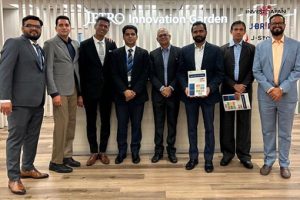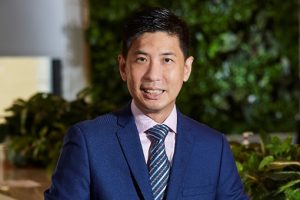In a compelling address at the United Nations General Assembly (UNGA) in New York, Minister for Foreign Affairs Vivian Balakrishnan emphasized the imperative of preparing for the associated risks and ensuring equitable benefits distribution in the era of the digital revolution and artificial intelligence (AI).
Against the backdrop of the digital transformation and the ascent of AI, Minister Balakrishnan underscored the urgency of addressing the evolving landscape. He noted that while generative AI, exemplified by technologies like ChatGPT, has captured widespread imagination in the past year, the world is already on the brink of the next phase of AI development – AI agents capable of negotiation and transactions with both other AI entities and humans. This advancement, as he stated, carries profound implications for societies, politics, and economies on a global scale. Minister Balakrishnan delivered Singapore’s national statement during the 78th session of the UNGA.
Quoting UN Secretary-General Antonio Guterres’ cautionary words delivered at the UNGA’s opening, Dr. Balakrishnan acknowledged that while generative AI holds immense promise, it also introduces the potential for unmanageable risks. He particularly stressed the gravity of this situation in the context of war and peace, where AI could disrupt established military doctrines and strategic deterrence.
One significant concern highlighted by the Minister was the swift deployment and activation of AI-enabled weapons systems, which could drastically reduce decision times for leaders. This could lead to scenarios where humans might not be directly involved in the decision-making process, yet they would bear the consequences of conflicts. Dr. Balakrishnan drew parallels with the Cold War era, where the concept of mutually assured destruction imposed a level of mutual restraint. However, he noted that the advent of AI in conflict situations has substantially heightened the risks.
In response to these challenges, Minister Balakrishnan called for the initiation of an inclusive global dialogue, advocating for the United Nations to take the lead in considering oversight mechanisms and necessary precautions to prevent miscalculations in AI-driven conflicts.
Singapore welcomed the decision to convene the High-Level Advisory Body on AI to explore these critical issues. Dr. Balakrishnan expressed optimism that the United Nations and the multilateral system would rise to the occasion in establishing norms for these rapidly emerging technologies.
He concluded by highlighting the digital divide that persists in today’s world, where more than 2 billion people still lack internet access. Dr. Balakrishnan emphasized the need for concerted efforts to bridge this gap and ensure that the benefits of digital transformation are accessible to all.
Top of Form
“Singapore Urges United Nations to Address AI Risks While Ensuring Fair Benefits Distribution””Singapore Urges United Nations to Address AI Risks While Ensuring Fair Benefits Distribution””The Philippines’ Largest TV Network Introduces AI ‘Sportscasters,’ Sparking Debate Among Sports Journalists””The Philippines’ Largest TV Network Introduces AI ‘Sportscasters,’ Sparking Debate Among Sports Journalists””The Philippines’ Largest TV Network Introduces AI ‘Sportscasters,’ Sparking Debate Among Sports Journalists”Top of Form
Top of Form






















